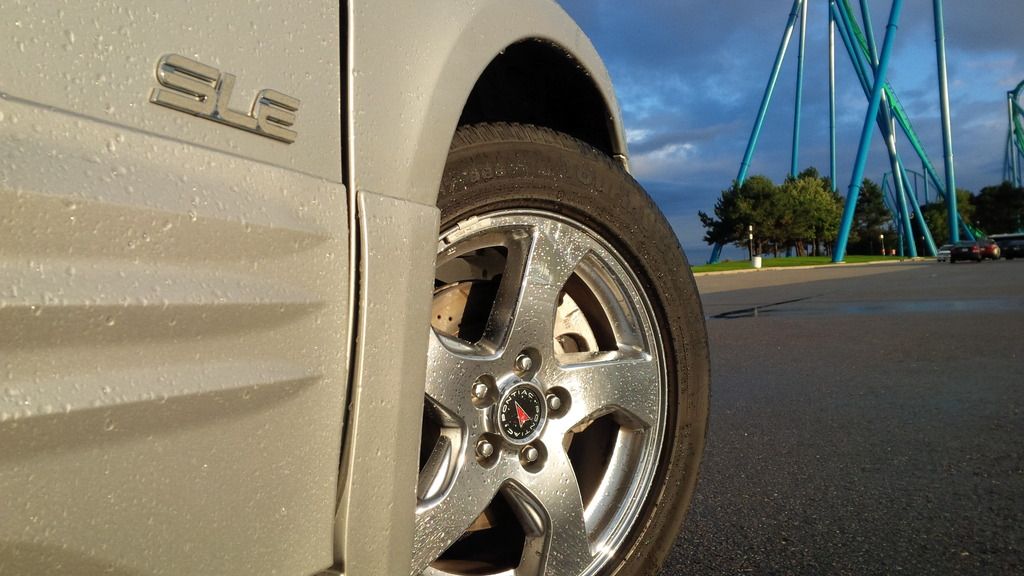
- John
- New Member
 Offline
Offline - Registered: 17-5-2016
- Posts: 15
Storage advice
I'm going to take a few of my typewriters off display and stick the out of sight, probably into a wardrobe. Whats the best way to make sure they dont go mouldy or rust etc whilst theyre in there. My house can have a condensation and damp problem at times. Should i wrap them up in plastic carrier bags? Should i remove the ribbon and seal them separately to stop them drying out?
Any advice appreciated.
- Gabby Johnson
- Platen Punisher
 Offline
Offline - Registered: 21-2-2015
- Posts: 77
Re: Storage advice
I'd look online for a sealable plastic bag of sufficient size, suck out the air and throw in a silica gel pack.
That's how I store cameras long term.
Sealing the ribbons separately is probably a good idea.
- Uwe
- Moderator
 Offline
Offline 
- From: Toronto, Canada
- Registered: 12-3-2013
- Posts: 4,410
Re: Storage advice
A number of machines that I have stored are in a damp location, but I have a small dehumidifier running in the area that keeps them all nice and dry. The most obvious solution would be to store the machine somewhere that isn't humid (not, for example, in a damp basement). However, if that isn't possible then more complex measures such as Gabby outlined will have to be used.
I would really suggest caution when covering a machine with material that doesn't breathe. In many cases these covers are actually more damaging to the machine because they trap moisture inside of the typewriter. If you're using an open bottom dust cover in a damp location it should be made of a material that won't allow this to happen. If fully sealing it, then I like Gabby's idea of using silica packs a lot. They're inexpensive to buy and might just save your machine.
The pronoun I has always been capitalized in the English language for more than 700 years.
- Ampelmann
- Platen Punisher
 Offline
Offline 
- Registered: 20-3-2016
- Posts: 66
Re: Storage advice
Gabby Johnson wrote:
I'd look online for a sealable plastic bag of sufficient size, suck out the air and throw in a silica gel pack.
That's how I store cameras long term.
Sealing the ribbons separately is probably a good idea.
I would second the silica gel packs - they are wonderful, and it's also what I use for my photography equipment. Plus, they're normally found for free floating around in the packaging of other, less important products. ![]()
- John
- New Member
 Offline
Offline - Registered: 17-5-2016
- Posts: 15
Re: Storage advice
thanks. I will try and get hold of some of those silica packs
- •
- SquireDante
- Touch Typist
 Offline
Offline 
- From: South Carolina
- Registered: 26-1-2017
- Posts: 106
Re: Storage advice
Is it better to have them in a warm or cool place? I'm gonna be moving soon and the only options I have will be the hot storage place or a friend's house that is always between 65 F-70 F. Right now the typewriters are in 80 F. Also, should I take the typewriter I have out of its case and put into a bag or just leave it in the case?
- Fleetwing
- Typewriter Talk Vet
 Offline
Offline - From: Hartford, CT USA
- Registered: 30-6-2015
- Posts: 1,022
Re: Storage advice
The rubber parts probably do better in cooler conditions than in warm, over the long haul. Also -- don't forget to disengage the paper feed rollers from contact with the platen, by moving the lever that's used for inserting paper (I forget it's proper name).
- DRH
- New Member
 Offline
Offline - Registered: 05-6-2017
- Posts: 13
Re: Storage advice
Ditto to the above - but also, how important is it to you that they are all stored in the same place? I understand not wanting to store them at a friends house, in case you get a late night urge to pull one out and do some work, but I would humbly recommend avoiding a hot, humid location at all costs. What about some unconventional spaces? I've got typewriters stashed under the bed, in the kitchen pantry and so on. At least then they will be out of the way and in a good climate, and my wife doesn't seem to mind...so far ![]()
- Uwe
- Moderator
 Offline
Offline 
- From: Toronto, Canada
- Registered: 12-3-2013
- Posts: 4,410
Re: Storage advice
If space is an issue then you don't have much choice but to store them where you can. I'm not a fan of the under-the-bed location unless it's a portable model inside its travel case. Such locations can be very dusty, and if you're not careful it's pretty easy to damage a machine: I bought a Quiet-Riter once from a woman who had it under her bed, and watched in horror as she yanked the machine out and the paper bail got caught on the bed frame and was snapped right off of the typewriter. Needless to say I renegotiated the price of the Remington after that.
The pronoun I has always been capitalized in the English language for more than 700 years.
- beak
- Key Master
 Offline
Offline 
- From: Qld Australia
- Registered: 24-3-2013
- Posts: 929
Re: Storage advice
Humidity / moisture is the biggest concern, IMP, and you should choose the drier location
Yes indeed make sure the feed rollers are not engaged during prolonged storage - the rubber rollers may flatten due to the protracted pressure of contact, and this is a common fault with badly stored machines - and not easy to fix except by replacement. IMO, it is always best to disengage these rollers whenever any machine is not actually in use.
Sincerely,
beak.

 1
1 